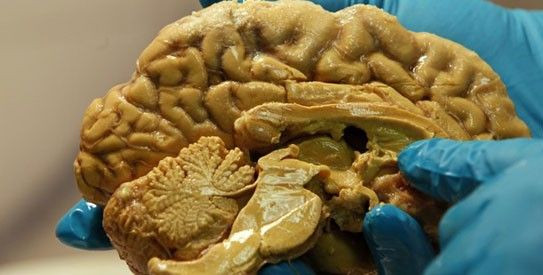Addiction Redefined As Chronic Brain Disorder, Not Bad Behavior

Can't let go of that one pint of lager? What then is the reason behind such compulsive drinking bouts? Scientists have now redefined addiction as a case of brain disorder, so beware!
The American Society of Addiction Medicine (ASAM) has redefined addiction as a brain disease and has for the first time taken an official stand which interprets 'addiction' as a syndrome that goes beyond behavioural problems and not just limited to substance abuse or, those related to either gambling or sex. ASAM is the nation's largest professional society of physicians dedicated to treating and preventing addiction.
The new definition is expected to enable physicians, families and friends of addictive individuals to understand the underlying causes of physical indulgences by mapping the brain and accordingly treating the disorder.
The National Institute on Drug Abuse (NIDA) has estimated that although 23 million Americans need treatment for substance abuse, only about two million get the requisite help to overcome their perpetual cravings.
The new definition, according to ASAM can work as a tool to access chronic brain disorder when linked to cravings for drug, alcohol, gambling and compulsive eating. Akin to chronic illness such as heart disease or diabetes, treatment for "addiction" could be a long-term challenge.
The new definition also describes addiction as a primary disease, which means that it is not a result of other secondary causes such as emotional or psychiatric problems. Addiction is also recognized as a chronic disease, like cardiovascular disease or diabetes, so it must be treated, managed and monitored over a life-time.
ASAM notes, "When people see compulsive and damaging behaviours in friends or family members -- or public figures such as celebrities or politicians -- they often focus only on the substance use or behaviours as the problem. However, these outward behaviours are actually manifestations of an underlying disease that involves various areas of the brain."
Dr. Michael Miller, past president of ASAM who oversaw the development of the new definition, said: "At its core, addiction isn't just a social problem or a moral problem or a criminal problem. It's a brain problem whose behaviours manifest in all these other areas. "He said: "Many behaviours driven by addiction are real problems and sometimes criminal acts. But the disease is about brains, not drugs. It's about underlying neurology, not outward actions."
Dr Miller observed that instead of antagonizing people who suffer from addictive behaviour, it is best to understand the root cause of the behaviour as a first step. "Many chronic diseases require behavioural choices, such as people with heart disease choosing to eat healthier or begin exercising, in addition to medical or surgical interventions. So, we have to stop moralizing, blaming, controlling or smirking at the person with the disease of addiction, and start creating opportunities for individuals and families to get help and providing assistance in choosing proper treatment."
Speaking on the longstanding controversy over whether people with addiction have choice over anti-social and dangerous behaviours, Dr. Raju Hajela, past president of the Canadian Society of Addiction Medicine and chair of the ASAM committee, stated: "The disease creates distortions in thinking, feelings and perceptions, which drive people to behave in ways that are not understandable to others around them. Simply put, addiction is not a choice. Addictive behaviours are a manifestation of the disease, not a cause."
Dr. Nora Volkow, director of the National Institute on Drug Abuse welcomed this new definition and explained its advantages for understanding the brain's chemical responses while monitoring a patient's addictive syndrome. "Then there's the frustration of relapses, which doctors and families alike need to know are common for a chronic disease," she noted.
Volkow adds: "Whatever the reason, the brain's reward system can change as a chemical named dopamine conditions it to routines that are linked to getting something you've found pleasurable, whether it's smoking, having a few drinks, or overeating. When someone's truly addicted, that warped system keeps them going back even after the brain gets so used to the high that it's no longer pleasurable."
The new definition resulted from an intensive, four-year process with more than 80 experts actively working on it, including top addiction authorities, addiction medicine clinicians and leading neuroscience researchers from across the country. The full governing board of ASAM and chapter presidents from many states took part, and there was extensive dialogue with the National Institute on Drug Abuse.
© Copyright IBTimes 2025. All rights reserved.





















